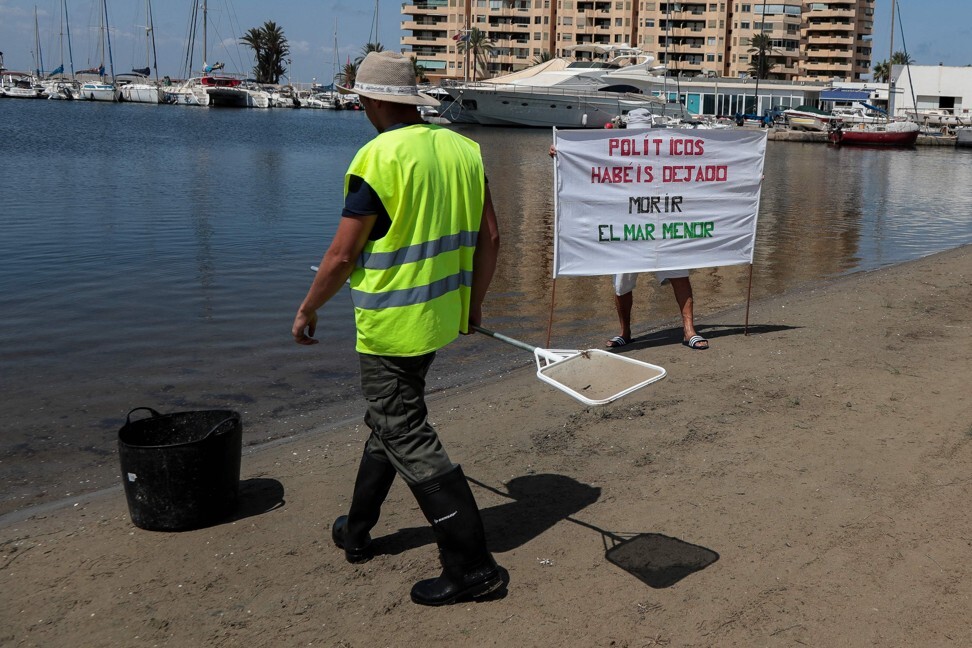
A crowd of about 70,000 people “embraced” Europe's largest saltwater lagoon on Saturday to protest against one of Spain's worst environmental tragedies in recent years.
The human chain, some 73km (45 miles) long, covered the entire circumference of the Mar Menor (Little Sea) in the Murcia region in the southeast of the country on Saturday, the Europa Press news agency and other media reported.
A minute's silence was also staged for the thousands of animals that have fallen victim to the pollution. Last week, nearly 5 tons of dead animals were pulled from the water in seven days, according to authorities.
It was not the first serious incident in the former nature and holiday paradise: Two years ago, for example, about 3 tons of dead lagoon inhabitants – mainly small fish and crabs – had been washed up. The conservative regional government and the left-wing central government blame each other.
The cause of the mass death of the fish is eutrophication, a harmful accumulation of nutrients in the water caused by human activities. This leads to a proliferation of algae and bacteria, which causes a lack of oxygen and deprives other plant species, fish and other animals and small creatures of their livelihood.
High temperatures accelerate eutrophication. Just before the recent catastrophe, a heatwave brought temperatures throughout Spain, in some cases well above 40 degrees Celsius (104 degrees Fahreneheit).
The Mar Menor was once considered one of the most beautiful areas in Spain – today, all that can be seen there is mostly a “green soup” that exudes a foul stench.
Environmentalists primarily pillory the regional government of Murcia, which does nothing about the intensive agriculture in the immediate vicinity of the lagoon, which is mainly to blame for the problems.
Especially when it rains heavily, mud containing fertiliser enters the lagoon in addition to fresh water.
Under pressure from the disaster and the protests, the regional government decided this week on some environmental regulations for the area, which environmentalists, however, have rejected as insufficient.








